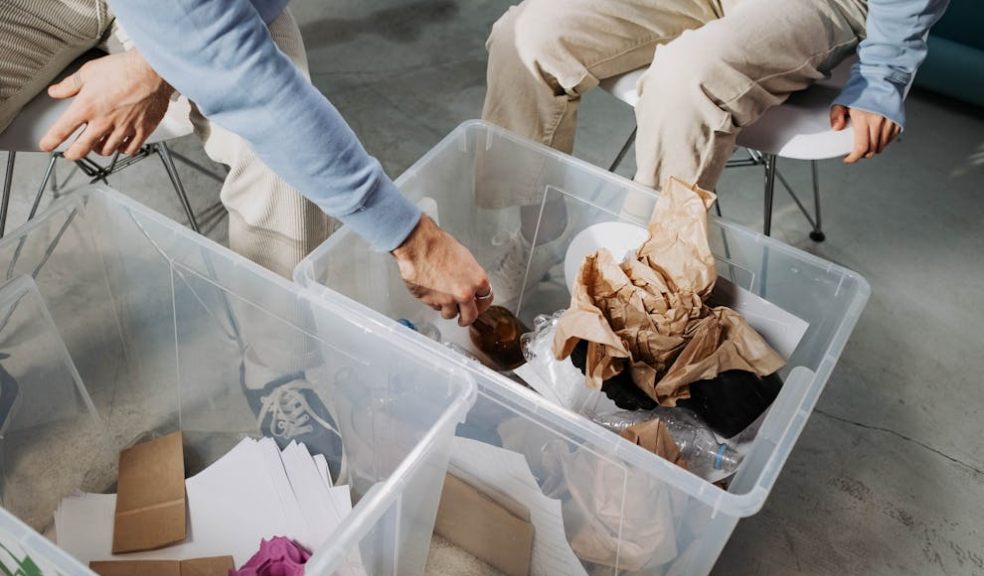
Five Ways Exeter Businesses Can Optimise Commercial Waste Collection
Managing waste is an unavoidable part of running any business, but how it is managed makes all the difference. For companies in Exeter, proper waste management isn’t simply about meeting regulations – it’s also about saving money, improving efficiency, and showing a commitment to sustainability. By refining processes and taking advantage of local services, businesses can reduce their environmental footprint while improving their bottom line.
Whether you’re running a café in the city centre, managing an office near the Quay, or overseeing a retail outlet in the surrounding areas, optimising commercial waste collection in Exeter offers practical benefits. Here are five effective ways local businesses can make their waste systems more efficient and sustainable.
1. Start with a Waste Audit
The first step towards improving waste management is understanding what you’re dealing with. A waste audit provides a clear picture of the types and volumes of waste produced by your business.
For example, an office might generate large amounts of paper and e-waste, while a restaurant or takeaway will produce more food scraps and packaging. By identifying these waste streams, you can make informed decisions about collection frequency, recycling opportunities, and provider choice. Many local waste companies in Exeter also offer free audits, making it easier for businesses to start on the right foot.
2. Choose the Right Collection Schedule
Getting the timing right can make a big difference. Some businesses book more collections than they need, leading to higher costs, while others don’t schedule enough and end up with overflowing bins.
Optimising collection schedules means balancing cost with practicality. A busy hospitality business in the city centre may require daily food waste collections, whereas a small office might only need weekly pick-ups. Exeter providers often offer flexible contracts, so businesses can tailor services to their unique needs and adjust them as operations change.
This kind of forward planning also prepares companies for future regulatory shifts. Businesses that adapt early by aligning waste and packaging practices can save both money and stress in the long run. By taking the time to review and plan, companies can avoid unnecessary expenses and keep their premises looking tidy and professional.
3. Improve Segregation at Source
Waste segregation is one of the most effective ways to improve recycling rates and cut costs. When employees or customers place waste into clearly labelled bins at the point of disposal, the risk of contamination falls dramatically.
Simple measures such as colour-coded bins, clear signage, and accessible disposal points can go a long way. Food waste, recyclables, and general waste should each have their designated containers. Businesses in Exeter can also make use of local recycling services for materials such as glass, cardboard, and plastics.
Engaging staff is crucial. Encouraging everyone to take part, perhaps through training or workplace challenges, helps build a culture where sustainable practices become second nature.
4. Partner with a Reliable Waste Provider
Working with the right partner ensures waste is collected efficiently and in compliance with UK regulations. Reputable providers in Exeter can offer more than just basic bin collection – they often supply detailed reporting, recycling options, and flexible service plans.
Look for providers who:
- Are fully licensed and compliant with regulations.
- Offer tailored solutions for different types of waste, including food, cardboard, glass, and hazardous materials.
- Provide transparent pricing with no hidden fees.
- Support sustainability through recycling and energy recovery initiatives.
By building a strong relationship with a trusted provider, businesses can ensure consistency and peace of mind while also meeting their sustainability goals.
5. Engage and Educate Staff
Even the best waste management systems will struggle without employee participation. Staff are at the heart of day-to-day operations, and their involvement is key to ensuring waste is handled properly.
Regular training sessions, clear communication, and even small incentives can help boost compliance. For example, businesses might introduce a “green champion” role within teams to encourage colleagues and keep sustainability top of mind.
Staff engagement also supports wider company culture. When employees feel they are contributing to environmental goals, it fosters pride and boosts morale. Customers, in turn, notice these efforts, strengthening the company’s reputation for responsibility and care.
The Wider Benefits of Waste Optimisation
Taking a smarter approach to waste management provides benefits that extend beyond saving money or complying with local regulations.
- Cost savings – Reducing waste volumes and improving recycling lowers disposal fees over time.
- Sustainability credentials – Environmentally responsible practices enhance a business’s reputation with customers and partners.
- Operational efficiency – A tidy workplace free of clutter supports productivity and creates a safer environment.
- Community impact – Exeter businesses that manage waste effectively contribute to the city’s overall cleanliness and sustainability efforts.
Optimising commercial waste collection in Exeter doesn’t have to be complicated. By starting with a waste audit, refining collection schedules, improving segregation, partnering with reliable providers, and engaging staff, businesses can make tangible improvements that deliver both environmental and financial rewards.
Waste management may not be the most glamorous side of running a business, but its impact is undeniable. Companies that invest time and effort into getting it right not only save money and stay compliant but also show customers, employees, and the wider community that they are serious about sustainability.




















